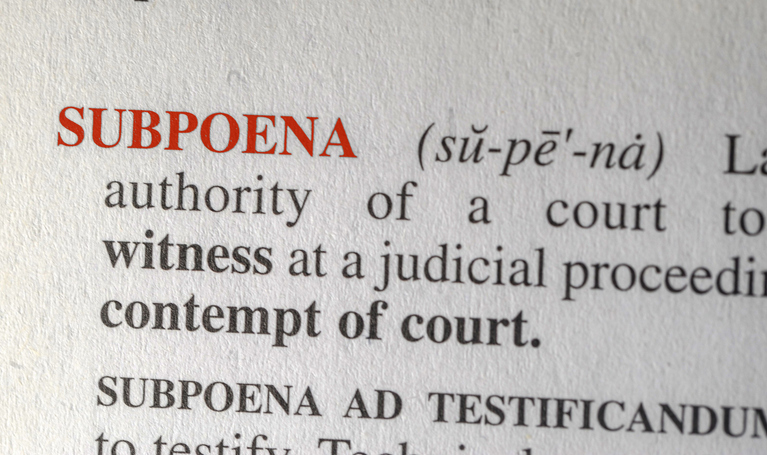Share
Share

Federal Sentencing And Trial Penalty
Experienced federal defense lawyers know all too well the so-called “trial penalty” or “trial tax” imposed on federal defendants who exercise their Sixth Amendment right to trial by jury. Even so, it’s a matter that regularly flies under the radar. Many federal defendants face severe repercussions for putting the federal government to its burden of proving guilt beyond a reasonable doubt, despite the principle being a bedrock of the U.S. Constitution and our federal criminal justice system.
At Evergreen Attorneys, we know that the decision to plead guilty or go to trial is often the most difficult in a federal criminal case. It is crucial that your attorney fully advise you of all the advantages and disadvantages that comes with a guilty plea versus a trial. One such consideration that many defendants are never made aware of is the “trial penalty.”
Today, we are covering a recent case out of the U.S. District Court for the Southern District of New York where the district judge dives deep into the constitutionality of the “trial penalty” and holds U.S.S.G. § 3E1.1(b) unconstitutional.
In United States v. Tavberidze, No. 23-cr-585-03, Judge Rakoff delves into the almost taboo topic of the trial penalty, has some scathing words on application of the U.S. Sentencing Guidelines, and ultimately concludes that in order to preserve a defendant’s Sixth Amendment right to trial, section 3E1.1(b) of the Sentencing Guidelines must be found to be unconstitutional. Even the best federal defense lawyers need to stay up to date on cases like Tavberidze to know how to make the best arguments for federal criminal defense.
What is the Trial Tax or Trial Penalty?
The “trial penalty” or “trial tax” is not something you will see defined or codified in any statute or even the Sentencing Guidelines. Instead, it is a phrase that has been created to explain the disparity in sentences between those who exercise their right to trial and defendants who choose to plead guilty. We recently covered a case where a district court granted compassionate release to an individual based on the trial penalty.
There are a multitude of factors that account for why the trial tax exists. Sometimes, taking a case to trial means the sentencing judge will see and hear more evidence than they would in a guilty plea/sentencing case. Other times, some judges consider exercising your constitutional right to trial as refusing to accept responsibility or failing to show remorse if you are convicted.
At Evergreen Attorneys, we believe that every person charged with a federal crime needs to be prepared to go to trial from day one. That means you need to know about the so-called trial penalty and how to best navigate its consequences in your federal criminal defense.
Under the U.S. Sentencing Guidelines, which district courts are required to consider when imposing a sentence, a defendant can receive a reduction for “acceptance of responsibility” if he (a) “clearly demonstrates acceptance of responsibility for his offense,” or (b) assisted “prosecution of his own misconduct by timely notifying authorities of his intention to enter a guilty plea, thereby permitting the government to avoid preparing for trial and permitting the government and the court to allocate their resources efficiently.” U.S.S.G. § 3E1.1. Section 3E1.1 can result in up to a three-level reduction for “acceptance of responsibility,” but it is very, very rarely given in cases where a defendant proceeds to trial.
Tavberidze: The Trial Penalty’s Impact on the Sixth Amendment
Judge Rakoff begins his opinion by noting that in 2024, only 2.4 percent of all federal felony indictments went to trial. A staggering 97.6 percent of federal felony defendants pled guilty and waived their Sixth Amendment right to a speedy and public trial before a jury of his peers.
The court found the underlying reason for this massive number of guilty pleas is the so-called “trial penalty.” The court noted that the theory underlying reducing a defendant’s sentence for a guilty plea is that it evidences a defendant’s remorse. In critiquing the state of the federal justice system, Judge Rakoff wrote:
The presumption that genuine remorse is evidenced by a plea of guilty is an empirically unsubstantiated theory that is especially suspect in a system where there is such great pressure to plead guilty in order to avoid the trial penalty. In this Court’s experience, when a defendant during a guilty plea inevitably states “I’m sorry,” what he often really means is that he is sorry that he was caught and that he is sorry that the risk of incurring a trial penalty if he goes to trial is so great that he does not dare exercise his constitutional right to put the Government to its proof.
It is rare for federal criminal defense attorneys to see a sitting district court judge outright criticize the Sentencing Guidelines like this. We are hopeful that more judges will take similar arguments more seriously in the future.
Stern Words for the Sentencing Commission
The court then turned its attention to the Sentencing Guidelines. Before discussing how U.S.S.G. § 3E1.1(b) is an unconstitutional trial penalty, the district judge had some strong words for the U.S. Sentencing Commission:
To a remarkable extent, the Commission has never articulated in other than conclusory fashion the bases for its overall numbering system, let alone its bases for picking particular numbers for particular offense levels or adjustments. Why, for example, the Guidelines prescribe the addition of two points for one adjustment and four for another – as opposed to, say, three points for both, or one point for one and five points for another – appears to be entirely lacking in any articulated statistical methodology, let alone empirical foundation.
Acceptance of Responsibility and the Sixth Amendment
“In all criminal prosecutions, the accused shall enjoy the right to a speedy and public trial[.]” U.S. Const. Amend. VI. The district court concluded that section 3E1.1 of the U.S. Sentencing Guidelines violates the Sixth Amendment right to trial in two ways. First, 3E1.1 penalizes a defendant who proceeds to trial based on his decision to exercise his Sixth Amendment right guaranteed by the U.S. Constitution. Moreover, the “acceptance of responsibility” guideline can penalize a defendant who “takes too long” to decide to plead guilty instead of trial.
Second, the court found 3E1.1(b) violates the Sixth Amendment because it can only be applied if the government moves for the additional reduction. Based on these factors, the district court concluded that section 3E1.1(b) is unconstitutional, and the remedy is to reduce the penalty effectively imposed on every defendant who chooses not to plead guilty (or pleads guilty too late) by removing one point from the offense level.
The court left open the question of whether the two-point reduction under U.S.S.G. § 3E1.1(a) is unconstitutional since this particular court’s practice is to use its discretion and policy reasons to give an equivalent reduction under the Guidelines range.
Federal White Collar Defense- Evergreen Attorneys
Contact the Federal Defense Lawyers at Evergreen Attorneys for Help Today
If you or a loved one are under federal indictment or facing sentencing, it is incredibly important to have competent and experienced federal defense attorneys fight by your side. Reach out to us today for a free consultation. You can call us at 303-948-1489 or email us at [email protected].
David Boyer
It was David’s passion for the law and helping others that led him to becoming an attorney. He particularly enjoys appellate and post-conviction work.
David is proud to offer representation nationwide from his office in Plano, Texas.
STAY IN THE LOOP













